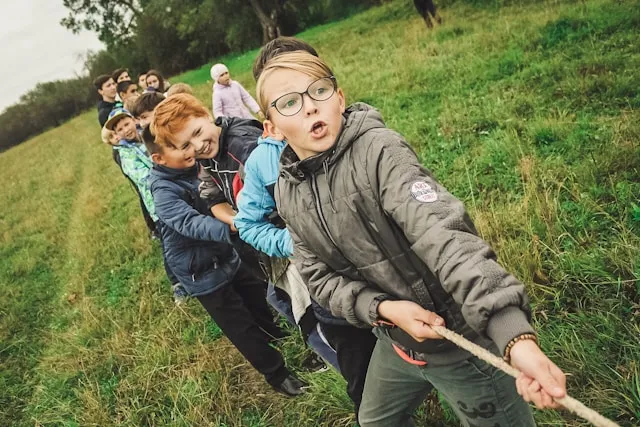Collaborative post by another author.
Watching your children pack their bags for summer camp is always a strange mix of emotions. There’s the pride and excitement for the adventure that awaits them, but also that little pang of sadness as you imagine the house being a bit quieter. It’s their first real step towards independence and while you're excited for them, it’s hard not to worry just a little. I’ve learned that it's all about finding that balance between letting them go and keeping our connection strong, even when they're miles away.
This is a new adventure for both of you. Getting ready for it means a lot of preparation, from understanding how you can communicate to knowing how to handle those moments of homesickness. Here is what I’ve learned about navigating it all.
 |
| Photo by Anna Samoylova on Unsplash |
Staying in Touch from Afar
Before they go, the most important thing is to understand the camp's communication rules. Every camp is different. Some might encourage letters while others have scheduled phone calls. It's a good idea to read the camp handbook carefully to understand their policies.
Once you know the rules, have an open conversation with your child. Talk to them about when you'll be in touch and what to expect. It's an opportunity to reassure them that you're always there for them, even if you can't talk every day. It's also important to know how the camp will contact you in an emergency so you have peace of mind. These policies are designed to help your child fully experience the magic of camp without being distracted by their phones.
Letters, Calls and Care Packages
Staying connected with your child while they’re away takes a little creativity.
There is something so special about a handwritten letter. I always encourage my children to write about their day and what they’ve been up to. And of course, I make sure to write back. Those letters become treasured keepsakes that hold wonderful memories of their summer adventure.
If your child's camp allows phone calls, make the most of that time. Listen carefully to their stories and adventures. This is a chance for them to feel supported and connected to home.
Some camps encourage digital communication like emails. This can be a fast way to get communication to each other where they can reply in their own time. If possible check to find out what time a day they might have access to emails so you can make sure they have something waiting for them to read.
Sending a care package can be a wonderful surprise. You can fill it with a few little treats and things that remind them of home. I love to include some of their favourite snacks and a fun new game. We once sent a couple of Softball Jerseys for them and their friend. Just remember to check the camp’s rules on packages beforehand.
Supporting Your Child Emotionally
Helping your child with their feelings while they are away can be challenging. It’s a delicate balance of giving them space to grow and providing the comfort they need. I’ve learned that the best thing you can do is to be their emotional anchor from afar whether they are sharing their thoughts in writing or on the phone.
Let your children know how proud you are of them for being brave and trying something new. That encouragement will really boost their confidence. When they get in touch, listen with an open heart. Sometimes, just knowing they are being heard is enough. If they mention feeling homesick, normalise it for them. Remind them that it's a completely normal feeling and that they are not alone.
If they face any challenges at camp, try to resist the urge to solve their problems for them straight away. Instead, encourage them to think about solutions or ways to address the issue. Guiding them gently in this way helps them build their own problem-solving skills and independence.
Helping with Homesickness
Let them know that feeling homesick is completely normal. Sharing your own experiences of missing something familiar can help them understand that they aren't alone. When they call or write, stay positive. Focus on all the exciting things they're doing and the new friends they are making. You can also gently encourage them to join in activities. Staying busy and making new friendships can often help with feelings of homesickness.
Coordinate with Camp Staff
If homesickness persists or your child faces significant challenges, don't hesitate to communicate with the camp staff. They are experienced in handling such situations and can provide additional support to your child.
Provide Coping Strategies
Equip your child with simple coping strategies before they head to camp. Techniques like deep breathing, writing in a journal, or having a comforting object from home can soothe challenging moments.
Why not got to camp together?
If your child isn't quite ready for a solo trip, there are other options. Family camps are a wonderful alternative where you can experience all the fun of camp together. It's a great way that parents can help kids enjoy their summer at camp, ensuring that no one misses out on the fun.
By joining in activities as a family, you can create lasting memories while gently preparing your children for future independent adventures. It is a shared experience that builds confidence and reassurance.


.jpg)

.jpg)

.jpg)
.jpg)










No comments
Thanks for your comment (unless it's spam in which case, why?)